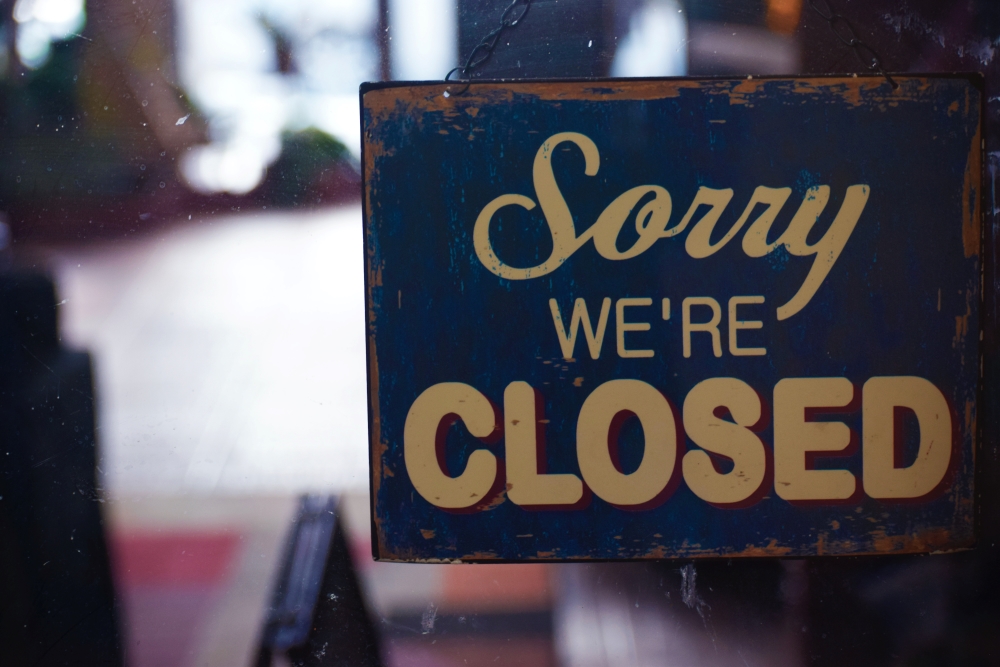What happens to a director of a company in liquidation?
If you find yourself in the unfortunate position of your limited company facing insolvency, it can be a very uncertain and stressful time. In this article, we’ll look at exactly what happens to a director of a company in liquidation.
There can also be a raft of misinformation passed around about what may happen to you personally and professionally as you liquidate your company. This can muddy the waters and make it difficult to decide which course of action is the correct avenue to proceed down or delay you taking the appropriate action. The longer that you put off a decision like this, the more chance that things can go wrong, leaving you in a vulnerable position personally.
When your company enters liquidation, it is vital that you are aware of the company’s financial position and have acted to support your creditor’s interests.
How will liquidation affect me as a company director?
Providing you have acted responsibly and in a timely manner, winding up your insolvent company shouldn’t place you in any difficulty from a personal perspective.
Although, it’s vital you take the appropriate action as soon as you realise that your company is in financial difficulty.
If a liquidator can prove that you have been slow to act, you have failed to keep adequate records, or you have continued to take credit that you knew your limited company was unlikely to repay, they can argue that wrongful trading has taken place. This increases your personal risk, and you may be held personally liable for your company’s debts.
What are my best options to reduce my personal liability?
The best way to reduce your personal liability is to act as quickly as possible when you realise your company has no future. The fastest and most efficient method of dealing with your insolvent company with no future is entering a voluntary liquidation process.
If you fail to do this, in the hope that things may turn around or you bury your head in the sand, the company may be wound up by its creditors (placed into compulsory liquidation).
In a compulsory liquidation, the Official Receiver will carry out a conduct report on each director, where they delve into the activity of the directors and company for the last two or three years. If the Official Receiver unearths any wrongdoing in the events leading to your company’s insolvency, you may be made personally liable for your company’s debts from the time you should have realised the company had no financial future. This could include PAYE, VAT and repaying creditors.
Under the Company Directors Disqualification Act 1986, you can also face disqualification as a director of any other company for up to 15 years, as well as fines, loss of personal assets, personal bankruptcy and even a prison sentence.
Overdrawn Directors Loan Accounts
When an insolvency practitioner is appointed, they will have a duty to check if the company directors owe the company any money, this is called an overdrawn directors loan account. If you have one, then you will be asked to repay it back to the company, and legal action may be taken against you.
Remember, an overdrawn directors loan is classed as an asset of the company, and the insolvency practitioner is duty-bound to try to recover the loan back from the director. This can be quite scary for directors as many don’t know what an overdrawn directors loan account is and sometimes it is not uncovered until after an insolvency practitioner is appointed.
For your own sake, it’s important you understand if you have an overdrawn directors loan account and if you do, how the insolvency practitioner will handle it if you go into liquidation.
This is not something to look at in the future when your company is already in the liquidation process. It’s critically important that you check and understand your director’s loan position before you appoint a liquidator.
What happens if I’ve signed personal guarantees?
As a company director, you may have signed a personal guarantee to borrow money as part of a supplier agreement or to a landlord, meaning you are held financially responsible should your company become insolvent.
When facing closing up your company, this additional burden may prevent you from acting in a timely manner. Unfortunately, there is little that can be done about a personal guarantee before you liquidate, but you can take advice from one of our team and have a plan to deal with the personal guarantee once the business is placed into a liquidation process.
Don’t let a personal guarantee stop you from making the right decision, you must put things into perspective. Weigh up this obligation against being personally liable for ALL of your company’s debts and liquidate your company as soon as you realise it is necessary.
Preference payments
You may be accused by an insolvency practitioner of making preference payments once they investigate your director’s conduct. Simply put, a preference payment refers to the situation where one creditor receives preference over another. For example, repaying loans from your family or paying certain suppliers over others, please don’t be tempted to repay a debt that you have personally guaranteed over other company debt.
This director misconduct will be picked up by the insolvency practitioner and could lead to serious consequences for you.
Transactions at undervalue
Many directors attempt to sell the company’s assets at a cheap rate before they appoint an insolvency practitioner. This results in the creditors getting less money and again will be looked at closely by an insolvency practitioner. If they suspect that a company’s assets have been sold undervalue, they have the power to reverse the transaction and make the director personally liable for the debt.
Bounce Back Loan Fraud
An insolvency practitioner will look closely at how you have applied for your bounce-back loan and how you spent it. Remember you were only able to apply for 25% of your 2019 turnover, capped at £50,000. If you were incorporated after January 2019, then you could estimate the company’s turnover.
When you took the loan, you had to declare that you would only use the loan for the benefit of the business. If it’s found that you didn’t do this, expect harsh consequences from the liquidator and the insolvency service. This criminal action will not be taken lightly when your company becomes insolvent.
It may be that you have merely acted naively and may not have knowingly acted inappropriately. However, now you do know, it’s vital that you take advice today and potentially stop trading and place the company into a voluntary liquidation process. Alternatively, you could consider a Company Voluntary Arrangement (CVA), provided the company will be viable when its problems are solved.
What is a Company Voluntary Arrangement (CVA)?
A Company Voluntary Arrangement (CVA) is a legally binding contract between your company and its creditors that allows a proportion of debts to be paid back over time. It’s the best rescue tool available for a company with a viable future but is burdened by previous debt.
Usually lasting for three to five years, a CVA ensures that the company can trade as usual, with the directors remaining in control. It can also assist by quickly improving cash flow, reducing pressure from PAYE and tax implications, and allowing you to terminate expensive lease agreements.
What is a Creditors’ Voluntary Liquidation (CVL)?
A Creditors’ Voluntary Liquidation is, as the name suggests, a voluntary process for directors and shareholders to enter when the business is in a position of insolvency.
It removes the problems and worries that occur with mounting debts when a company has no way of paying them due to little or no cash flow. The company directors are responsible for deciding whether to enter a CVL, but the shareholders will need to approve the necessary solutions required. It’s the most common way for businesses to liquidate in the UK.
It’s important to note that a CVL is different from a compulsory liquidation, which is when the company’s creditors issue a winding-up petition, effectively forcing the business into liquidation.
Can I claim redundancy in liquidation?
If you can prove that you have fulfilled a similar role to your company’s employees, as well as acting as director, you may be eligible to claim redundancy, like any other employee. This can be a much-needed lifeline at this challenging time. The average claim for director redundancy is £9,000 so more than enough to pay for your insolvent liquidation fees.
What happens to a director of a company in liquidation? What are my next steps?
If you believe your business is heading towards insolvency or your company is already at the point of insolvency, get in touch with our expert team at 1st Business Rescue urgently. We will be able to assess your status and discuss the best course of action for you as a director and for the business as a whole.
After the company liquidation, you’re free to forget about company debts and stop worrying. If you need any support, please contact us, we work in the best interest of the company director. We hope this article has been useful regarding what happens to a director of a company in liquidation.
I'm Chris Worden, Managing Director at 1st Business Rescue. With over 7 years of experience, I help UK directors navigate the complex world of UK corporate insolvency. We offer free and independent advice to UK directors and advise them about what options may be available to them if their limited company starts to struggle.
I am passionate about helping other directors overcome their business challenges and get back on their feet, as I was once in the same position as them. I had a business that became insolvent, and the advice out there was confusing and overwhelming. I am here to provide honest and valuable advice to UK directors.
I am proud to say that we are one of the only 5-star corporate insolvency companies on Trustpilot with hundreds of 5-star reviews, and we publish videos weekly on our YouTube channel. Our channel is designed to educate UK directors about insolvency and debt advice. Check it out here:
Please get in touch and we’ll come back to you
without delay.
Call 0808 506 2246
Text 07717 738 167
Complete a Free Online Enquiry





